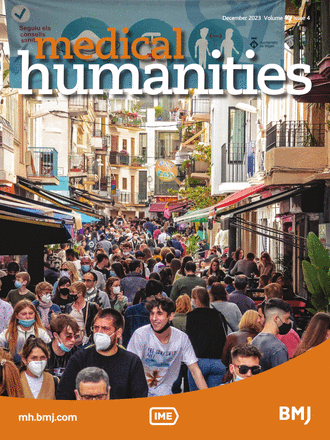
Transitions & Transformations: Medical Humanities in Times of COVID-19
Edited By: Anna M. Elsner and Monika Pietrzak-Franger
Publisher: BMJ Journals (Medical Humanities)

The foundations for this special issue, Transitions & Transformations: Medical Humanities in Times of COVID-19, were laid during the early days of the pandemic, when the editors co-organised an online seminar series to address the theme of borders in the Medical Humanities. At the time of our virtual exchanges, national borders were closed, various travel requirements were introduced, and COVID-vaccination passports issued. The pandemic confronted us with many uncomfortable questions, such as: What measures, as societies, are we willing to take in order to protect vulnerable, ageing and marginalised groups and to fight systemic racism? How will we mourn the many dead? By spotlighting these issues, the pandemic would, we hoped at its onset, constitute a moment of reckoning that would help us reshuffle our priorities. What has become clear in the aftermath of the pandemic and its socioeconomic and cultural impact is that the Medical Humanities have a key role to play when it comes to scrutinising and reflecting on COVID-19-related transitions and transformations across societies and cultures.
Although the memory of the pandemic appears to be fading fast, the crisis has highlighted the intricate relationship between health and politics; it has demonstrated that public interventions are possible if there is trust in authorities, medicine and, above all, scientific expertise. It has also reminded us that, since such seismic events take place in specific cultural, social and linguistic environments, they are shaped by complex rhetorical and visual strategies, materialise in particular everyday practices and objects and are guided by specific understandings of ethical concepts, such as trust, responsibility or solidarity. In response to these considerations, this special issue situates the pandemic as a transitional phase as well as an opportunity for transformations within the field of the Medical Humanities. It asks, on the one hand, what is the role of the Medical Humanities in (post-)COVID-19 times and how has COVID-19 transformed discourses within and the practice of the Medical Humanities, on the other. With this collection of articles, we invite our readers to pause and reflect on the challenges the pandemic has generated for the Medical Humanities, to assess how the field has responded to these and to imagine what the most urgent future developments are.